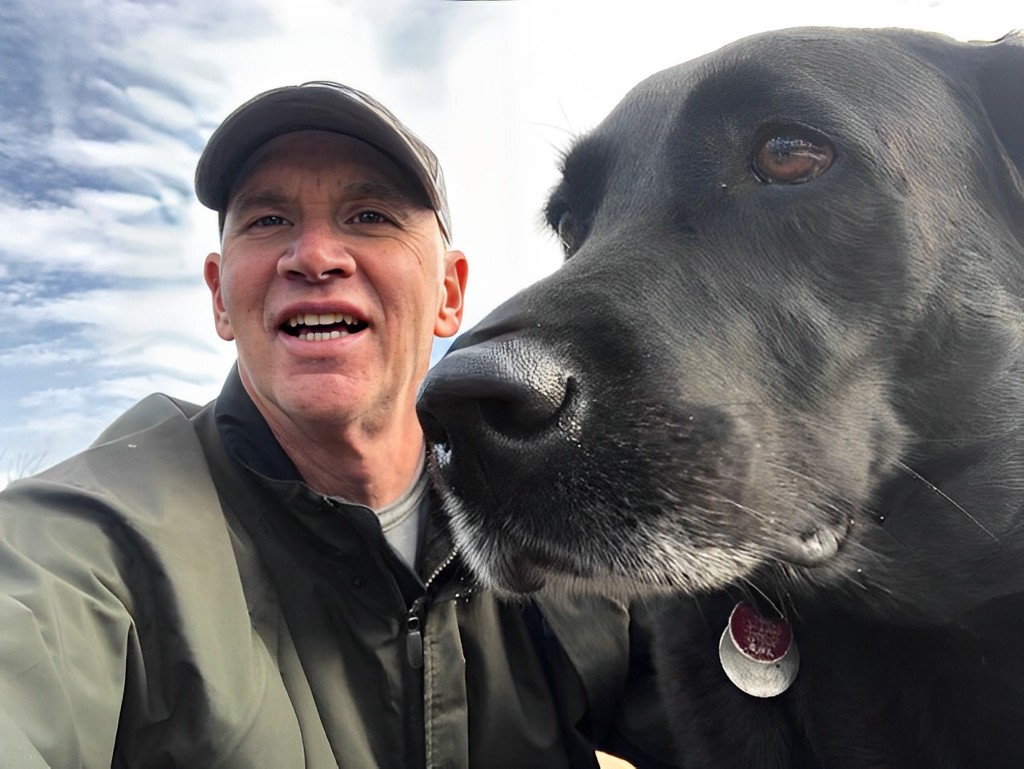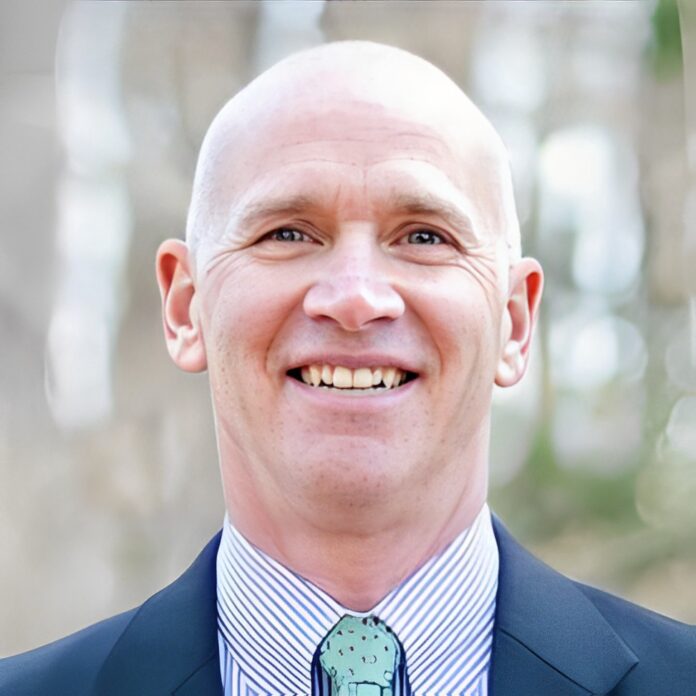Clear your mind. Have a solitary physical release without outside distraction (no ear buds with podcasts or music) — hiking, walking, running, yoga, simple stretching — to clear your mind. Once and while hitting ‘reset’ is necessary.
As part of my series about “authors who are making an important social impact”, I had the pleasure of interviewing Bo Bancroft.
An Ohioan by birth, Bo has lived in his adopted hometown of Atlanta, GA for over 40 years. After a career in Telecommunications technology, he now works for Habitat for Humanity International whose mission is to address the global affordable housing crisis. Most weekends you can find Bo hiking in the north Georgia mountains with his Labrador Lula.
Thank you so much for joining us in this interview series! Before we dive into the main focus of our interview, our readers would love to “get to know you” a bit better. Can you tell us a bit about your childhood backstory?
My early years were spent in small town Ohio with Depression/WWII era parents who believed in honesty and modesty. It was a comfortable, somewhat sheltered upbringing where being a ‘free range’ child was the norm. In those years, small-town, middle-class Ohio was not diverse; thus, while my roots were strong, I held a certain naivete about the world. My perspective was broadened when I was an exchange student in Central American during the mid-70’s. I quickly learned the compassion, beauty, and inspiration of other cultures. That experience piqued my interest and served me well once I settled in racially diverse Georgia.
When you were younger, was there a book that you read that inspired you to take action or changed your life? Can you share a story about that?
The Adventures of Huckleberry Finn. As a child, I found the story of adventure and suspense captivating. Re-reading it at a later age, I appreciated the multiple layers of the book and how Twain used the story to convey several messages. The book taught me to consider all angles of a story, of life, that everything might not be clear-cut. I began paying attention to nuances.
It has been said that our mistakes can be our greatest teachers. Can you share a story about the funniest mistake you made when you were first starting? Can you tell us what lesson you learned from that?
Well, I don’t know if I’d put it in the funny category, but certain sections of my first draft were filled with what became known as “Bo Tangents”. Several of my beta readers had to rein me in from going off in an obscure direction at in inopportune time. Of course, I thought my tangents were hilarious though everyone else found them distracting. I quickly discovered that not everything going on in my head was worthy of being documented, nor did it add to the story.
Can you describe how you aim to make a significant social impact with your book?
The overall message of my novel was to drive home the importance of family and friends, the importance of human connection. In today’s age of extremism, connection is becoming more difficult to achieve. I chose to use satire to point out the dangers of political and racial extremism and how personal connection is necessary to survive. If one person decides not to post an angry missive on-line, and reaches out to speak directly instead, then I view that as a success.
Can you share with us the most interesting story that you shared in your book?
As a work of fiction, my hope is the entire novel is an interesting story! My favorite characters in the book are Seamus and Andrea, two Black Americans that deal with subtle, and not so subtle, racism yet continue to persevere.
What was the “aha moment” or series of events that made you decide to bring your message to the greater world? Can you share a story about that?
As our various communication channels continue to explode, it’s becoming more and more difficult to have a voice, let alone to have that voice heard. I think this is particularly true as you age; the experience one amasses seems to lose importance as the next, new, shiny concept is unveiled. When our country began to exhibit more and more extreme behavior, I had enough and decided a novel was the best way to have a voice. By using satire, I avoided being just another angry white male.
Without sharing specific names, can you tell us a story about a particular individual who was impacted or helped by your cause?
I wish I had an example! As a work of fiction, it’s difficult to know what, if any, impact my novel might have on an individual reader.
Are there three things the community/society/politicians can do to help you address the root of the problem you are trying to solve?
Absolutely. However, the issues of political extremism and racism are challenges democracies and societies will continually face. Our politicians certainly could display more honesty, modesty, and even-handedness. But like Eden’s apple, the temptations of power and influence are too strong for some. As for individuals, we should be slow to judge others. We have no idea the personal turmoil someone is facing, and we must be open to giving our fellow humans latitude. And we need remember community is non-existent without unity. It’s vital we step back and realize our common good is dependent on unity and not division. Summarizing, politicians must shun personal power, individuals need to be more forgiving, and our communities should avoid divisiveness. A very tall order, though I remain optimistic it’s possible.
How do you define “Leadership”? Can you explain what you mean or give an example?
Admittedly, due to my work with Habitat for Humanity, I have a biased opinion. I don’t think we can find a better example of Leadership than President Jimmy Carter. Agree or disagree with his politics, he is a man who constantly strives to better our global condition without regard for his own personal power or wealth. His actions speak for his convictions, and he shuns taking credit for success. “Leadership by example” is an overused term and often thrown to people without merit. That is not the case with President Carter.

What are your “5 things I wish someone told me when I first started” and why? Please share a story or example for each.
These five are appropriate not only for my novel, but my life in general.
- Be patient. Everything won’t come at once, it’s a process. If you’re too busy trying to get to the end, or to reach a particular goal, you’ll miss important items along the way.
- Ponder and wonder. Spend time analyzing rather than making a snap decision. Work it out in your head, or on paper, and be willing to reassess if you aren’t happy with your direction.
- Share. Be open to sharing your work for honest feedback from trusted individuals. While you might think you know your own voice, others can help you find it.
- Curb your ego. Self-improvement only comes with an open mind, eyes, ears, and heart. Ego blocks your ability to learn.
- Clear your mind. Have a solitary physical release without outside distraction (no ear buds with podcasts or music) — hiking, walking, running, yoga, simple stretching — to clear your mind. Once and while hitting ‘reset’ is necessary.
Can you please give us your favorite “Life Lesson Quote”? Can you share how that was relevant to you in your life?
Advice from my dad: “Experience is the best teacher.” This simple line has guided most of my life and shapes my world view. Scientists and engineers create concepts but must prove those out with experience, either in the lab or through beta tests. As humans, we must do the same thing. How can a young man from small town Ohio be truly educated on cultures, oppression, and injustice if he stays in that insulated town? Yes, education can provide answers but only on a limited basis. In my opinion, that is one of the biggest challenges we face today — people given a platform to express views, and determine policies, based on myopic experiences. That circles back to theme of my novel — the importance of human connection. Human connection provides an experience where a broad perspective is possible. And once you have that perspective, share it with others, either through your actions or by returning to that small town and leading by example.
Is there a person in the world, or in the US with whom you would like to have a private breakfast or lunch with, and why? He or she might just see this, especially if we tag them. 🙂
Malala Yousafzai. She’s so young, brave, and outspoken, yet also wise and forgiving. I find her story fascinating and would love to hear her views on a variety of topics.
How can our readers further follow your work online?
They can visit my website, bobancroft.com
This was very meaningful, thank you so much. We wish you only continued success on your great work!
Social Impact Authors: How & Why Author Bo Bancroft Is Helping To Change Our World was originally published in Authority Magazine on Medium, where people are continuing the conversation by highlighting and responding to this story.


